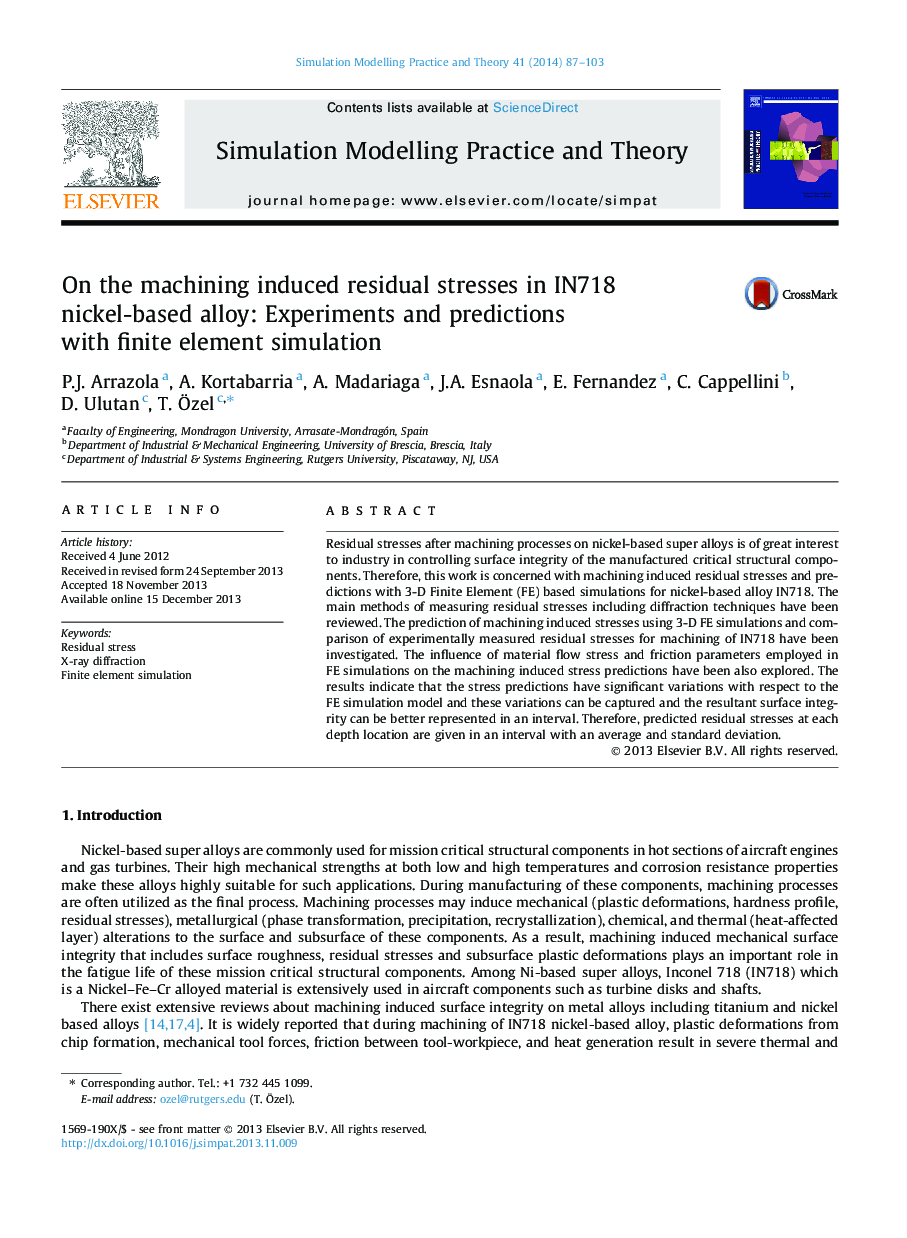| Article ID | Journal | Published Year | Pages | File Type |
|---|---|---|---|---|
| 493605 | Simulation Modelling Practice and Theory | 2014 | 17 Pages |
•Process parameter effects on residual stresses on IN718 material are investigated.•Simulation of chip formation process is used with a modified material model.•Influence of friction and material model on stress profiles is reported.•Simulation models are validated with comparison of measured and predicted stresses.•Stress profiles can be better represented by using average and standard deviations.
Residual stresses after machining processes on nickel-based super alloys is of great interest to industry in controlling surface integrity of the manufactured critical structural components. Therefore, this work is concerned with machining induced residual stresses and predictions with 3-D Finite Element (FE) based simulations for nickel-based alloy IN718. The main methods of measuring residual stresses including diffraction techniques have been reviewed. The prediction of machining induced stresses using 3-D FE simulations and comparison of experimentally measured residual stresses for machining of IN718 have been investigated. The influence of material flow stress and friction parameters employed in FE simulations on the machining induced stress predictions have been also explored. The results indicate that the stress predictions have significant variations with respect to the FE simulation model and these variations can be captured and the resultant surface integrity can be better represented in an interval. Therefore, predicted residual stresses at each depth location are given in an interval with an average and standard deviation.
